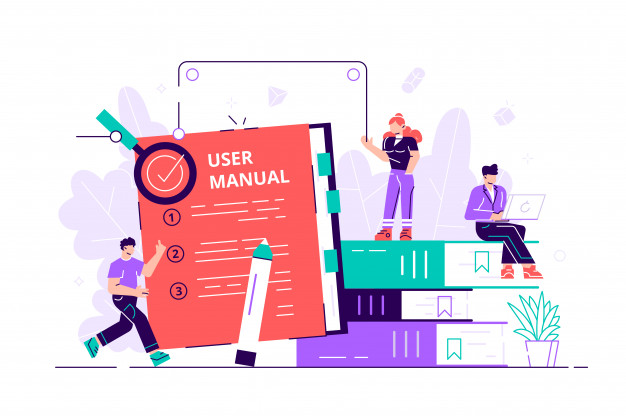With the abundance of devices and appliances today, manuals play a crucial role in shaping user experiences. Incorporating role-playing scenarios into online manuals can significantly enhance user understanding and engagement. This article explores the various benefits of using role-playing scenarios in manuals, focusing on examples like the Vivitar manual, Presto manual, and Tefal manual.
Enhancing User Engagement
One of the primary benefits of using role-playing scenarios in online manuals is the enhanced engagement they offer. Traditional manuals consist primarily of text and images that can often feel monotonous and intimidating for users. By integrating role-playing elements, users can immerse themselves in interactive scenarios that resemble real-life situations. For instance, a Vivitar manual might include a scenario where a user is planning to take a family photo at a park. The manual could guide them through using the camera effectively, thus creating a connection to the content. This engaging approach makes learning less daunting and more accessible.
Improving Retention of Information
Retention is often a significant barrier in understanding complex instructions. When users are presented with information in a dry manner, they may struggle to remember crucial steps. Role-playing scenarios can help improve retention by embedding information within relatable contexts. When users visualize themselves in a situation that requires the application of knowledge from a manual, they are more likely to remember the steps and procedures necessary to complete the task. For example, a Presto manual can feature a role-playing exercise where a user cooks a meal in a specific time frame, reinforcing cooking techniques and timing crucial for the Presto pressure cooker.

Simplifying Complex Concepts
Some appliances and gadgets can be intricate, with multiple functions that can confuse the average user. Role-playing can elucidate complex concepts by breaking them down into manageable parts. Rather than navigating through dense written instructions, users can experience a scenario that demonstrates the use of various features and functions. For instance, the Tefal manual could set up a cooking scenario where users must navigate through different cooking modes. By following along with a character in the scenario, users gain a clearer understanding of how to leverage the device's various capabilities effectively.
Fostering Problem-Solving Skills
Role-playing scenarios can also encourage users to develop their problem-solving skills. When users engage in interactive scenarios, they invariably encounter challenges that reflect real-life issues they might face while using their devices. This form of experiential learning not only aids in understanding how to use the product but also in adapting to unforeseen challenges. For example, a Vivitar manual could present a situation where users must adapt their settings to deal with low-light conditions. Through this role-playing exercise, users learn to troubleshoot potential problems while building confidence in their abilities.
Encouraging Community Interaction
Online manuals with role-playing scenarios can foster a sense of community among users. When manuals encourage users to share their experiences and outcomes, they create a platform for interaction. Communities can form around shared experiences, advice, and recommendations. For instance, users of the Presto pressure cooker can share tips on using the appliance effectively within the context of scenarios from the manual. This collaborative environment enhances the overall user experience while creating a supportive network for troubleshooting and sharing culinary success.

Facilitating User-Focused Updates
Role-playing scenarios allow for more fluid updates in online manuals. As user feedback is collected, it can easily be integrated into the manual in the form of new role-play scenarios that address commonly encountered issues or expand on successful techniques. This adaptability ensures that manuals stay relevant and user-centered. For instance, a Tefal manual could evolve through user interaction with new cooking trends or techniques, allowing the scenarios to be updated based on what is popular or commonly faced by users in the kitchen.
Conclusion
Incorporating role-playing scenarios into online manuals, such as the Vivitar manual, Presto manual, and Tefal manual, offers numerous benefits that enhance user experience and learning. By improving engagement, retention, and understanding of complex features, these interactive elements transform traditional manuals into immersive, user-friendly resources. As the demand for intuitive user experiences increases, the integration of role-playing scenarios provides a promising avenue for brands aiming to deepen their connection with customers. By adopting such innovative approaches, manufacturers can ensure their products are used to their fullest potential while creating a more enjoyable and educational user experience.















